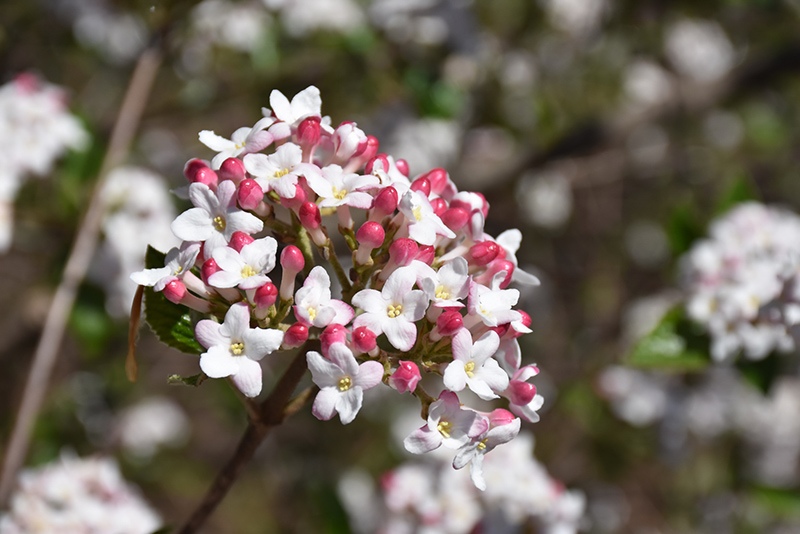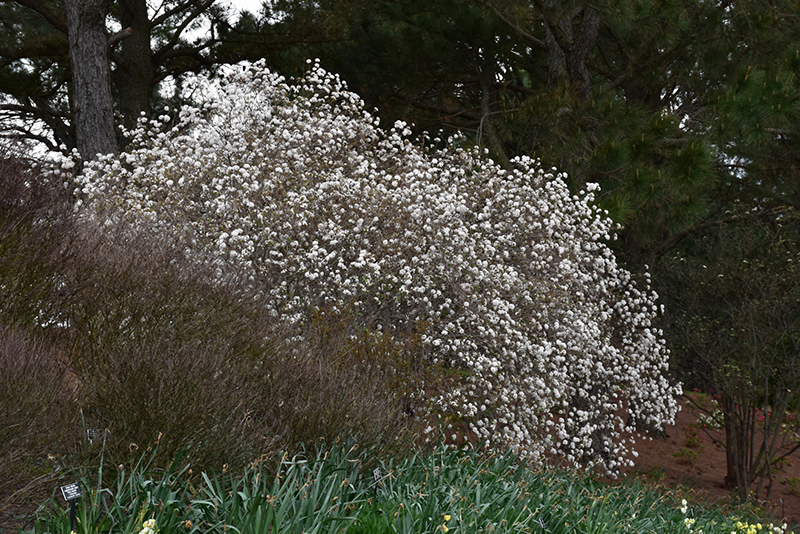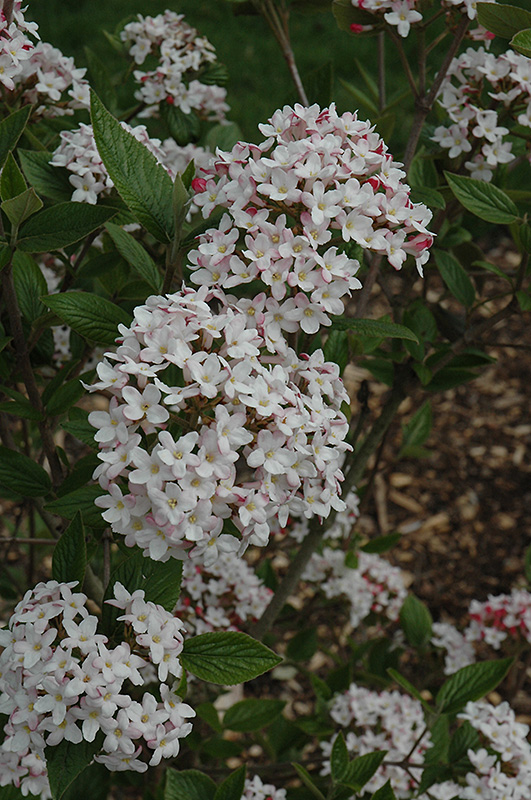Plant Search
Mohawk Viburnum
Viburnum x burkwoodii 'Mohawk'
Height: 7 feet
Spread: 7 feet
Sunlight:
![]()
![]()
Hardiness Zone: 5a
Description:
One of the finest garden shrubs, featuring showy red flower buds opening to intensely fragrant ball-shaped clusters of pink flowers in early spring, plant where the fragrance can be enjoyed, tidy the rest of the year; an ideal specimen or border shrub
Growing Place Choice Plants
Our Growing Place Choice plants are chosen because they are strong performers year after year, staying attractive with less maintenance when planted in the right place.
Learn more about this promotion!
Ornamental Features
Mohawk Viburnum is clothed in stunning clusters of fragrant white flowers with a cherry red reverse at the ends of the branches in early spring, which emerge from distinctive red flower buds before the leaves. It has dark green deciduous foliage. The narrow leaves turn an outstanding red in the fall.
Landscape Attributes
Mohawk Viburnum is a multi-stemmed deciduous shrub with an upright spreading habit of growth. Its average texture blends into the landscape, but can be balanced by one or two finer or coarser trees or shrubs for an effective composition.
This is a relatively low maintenance shrub, and should only be pruned after flowering to avoid removing any of the current season's flowers. Deer don't particularly care for this plant and will usually leave it alone in favor of tastier treats. It has no significant negative characteristics.
Mohawk Viburnum is recommended for the following landscape applications;
- Accent
- Mass Planting
- Hedges/Screening
- General Garden Use
Planting & Growing
Mohawk Viburnum will grow to be about 7 feet tall at maturity, with a spread of 7 feet. It has a low canopy with a typical clearance of 1 foot from the ground, and is suitable for planting under power lines. It grows at a medium rate, and under ideal conditions can be expected to live for 40 years or more.
This shrub does best in full sun to partial shade. It prefers to grow in average to moist conditions, and shouldn't be allowed to dry out. It is not particular as to soil type or pH. It is highly tolerant of urban pollution and will even thrive in inner city environments. This particular variety is an interspecific hybrid.
A NetPS Plant Finder tool




